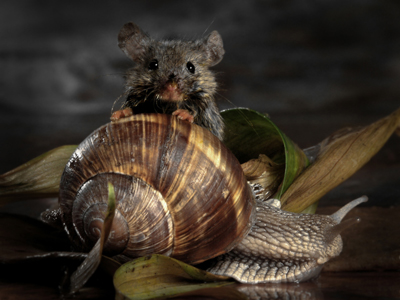
Ask the AI Tutor
Need help with Nouns (Irregular Plural) 01? Ask our AI Tutor!
AI Tutor - Lucy
Connecting with Tutor...
Please wait while we establish connection

'I keep several mice and this is the bravest mouse that I own'. Note that 'mice' is a collective noun for 'mouse'.
Nouns (Irregular Plural) 01
Some nouns don’t add -s or -es to make plurals. This KS3 English quiz explores irregular plurals, including Latin/Greek forms and exceptions you’ll meet in reading and exams.
1 .
Find the plural for the following word.
Goose
Goose
Geese
Geeses
Gooses
Goose's
But "moose" is the same whether singular or plural
2 .
Find the plural for the following word.
Mouse
Mouse
Mice
Mices
Mouses
Mouse's
"Mouse's" means "belonging to a mouse"!
3 .
Find the plural for the following word.
Woman
Woman
Womans
Woman's
Women
Women's
"Woman's" means "belonging to a woman"
4 .
Find the plural for the following word.
Gentleman
Gentleman
Gentlemans
Gentleman's
Gentlemen
Gentlesmen
It's easy to remember this one, because the plural of "man" is "men"
5 .
Find the plural for the following word.
Child
Child
Children
Childrens
Childs
Child's
Not "childs"!
6 .
Find the plural for the following word.
Foot
Foot
Feet
Feets
Foots
Foot's
Imagine if the plural of "boot" were "beet"! It's "boots", of course!
7 .
Find the plural for the following word.
Tooth
Tooth
Teeth
Teeths
Tooths
Tooth's
But the plural of "booth" is "booths"
8 .
Find the plural for the following word.
Dormouse
Dormouse
Dormice
Dormices
Dormouses
Dormouse's
Remember that the plural of "mouse" is "mice"
9 .
Find the plural for the following word.
Ox
Ox
Oxen
Oxen's
Oxes
Oxs
But the plural of "fox" is "foxes"
10 .
Find the plural for the following word.
Die (a cube used to play board games)
Die (a cube used to play board games)
Dice
Dices
Dice's
Dies
One cube is a "die" although we usually say "dice" anyway
**Unlimited Quizzes Await You! 🚀**
Hey there, quiz champ! 🌟 You've already tackled today's free questions.
Ready for more?
Ready for more?
🔓 Unlock UNLIMITED Quizzes and challenge yourself every day. But that's
not all...
not all...
🔥 As a Subscriber you can join our thrilling "Daily Streak" against other
quizzers. Try to win a coveted spot on our Hall of Fame Page.
quizzers. Try to win a coveted spot on our Hall of Fame Page.
Don't miss out! Join us now and keep the fun rolling. 🎉
**Unlimited Quizzes Await You! 🚀**
Hey there, quiz champ! 🌟 You've already tackled today's free questions. Ready for more?
🔓 Unlock UNLIMITED Quizzes and challenge yourself every day. But that's not all...
🔥 As a Subscriber you can join our thrilling "Daily Streak" against other quizzers. Try to win a coveted spot on our Hall of Fame Page.
Don't miss out! Join us now and keep the fun rolling. 🎉






